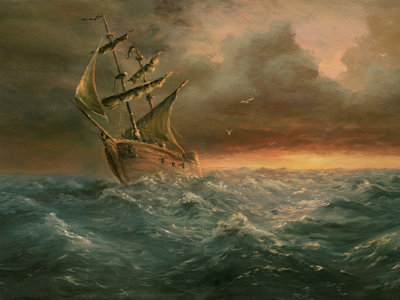
The Woman in Black - Language
This GCSE English Literature quiz takes a look at language. Language in Susan Hill's The Woman in Black is often used subtly. Much of the narration depicts landscapes and events in ways which might seem straightforwardly descriptive. The horror is frequently understated, making it all the more terrifying when Arthur hears the drowning pony and child out in the marsh, over and over again.
The eerily beautiful site where Eel Marsh House is located seems enthralling for its combination of sea, sky and sand, but these natural elements are made to seem otherworldly in a way that prepares the reader for the supernatural. The use of understatement and the way that ordinary scenes are described with quietly disturbing language make the novel a masterpiece of suspense.
Analysing language in a text
Being composed of words, texts are primarily understood through their language. All authors choose the individual words, phrases and imagery they use with precision. By devoting close attention to language, you can begin to understand any symbolic meanings and associations in the text. Authors are sometimes referred to as “wordsmiths” to emphasise the skill and craft involved in creating worlds out of language. Prose texts, such as novels, use language you might be more likely to associate with poetry, including metaphor, simile and personification, and other literary effects. Setting, characterisation and dialogue rely upon the author’s ability in using language.
You will greatly increase your understanding of the text by paying very close attention to its language. Linger over the words and imagery for a while, carefully considering the multiple possible meanings you perceive beyond the surface meaning. Think about the suggestions expressed implicitly by each individual choice of words, or combinations of words. While you’re reading, or re-reading, pay close attention to the language used and note any ideas that come to mind. By expending some time and care on language, you will develop your ability to analyse literature.
Answer the questions below to develop your understanding of the way language choices affect the reader’s interpretation of The Woman in Black.
Ready for more?
not all...
quizzers. Try to win a coveted spot on our Hall of Fame Page.







